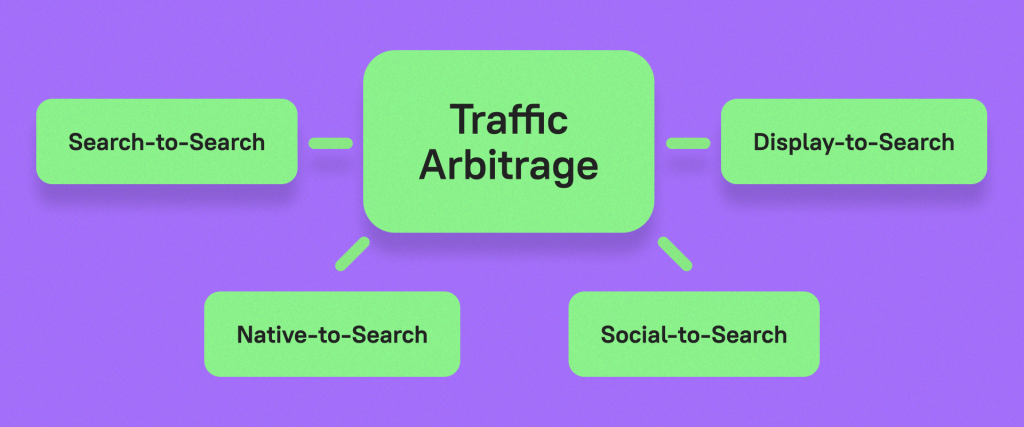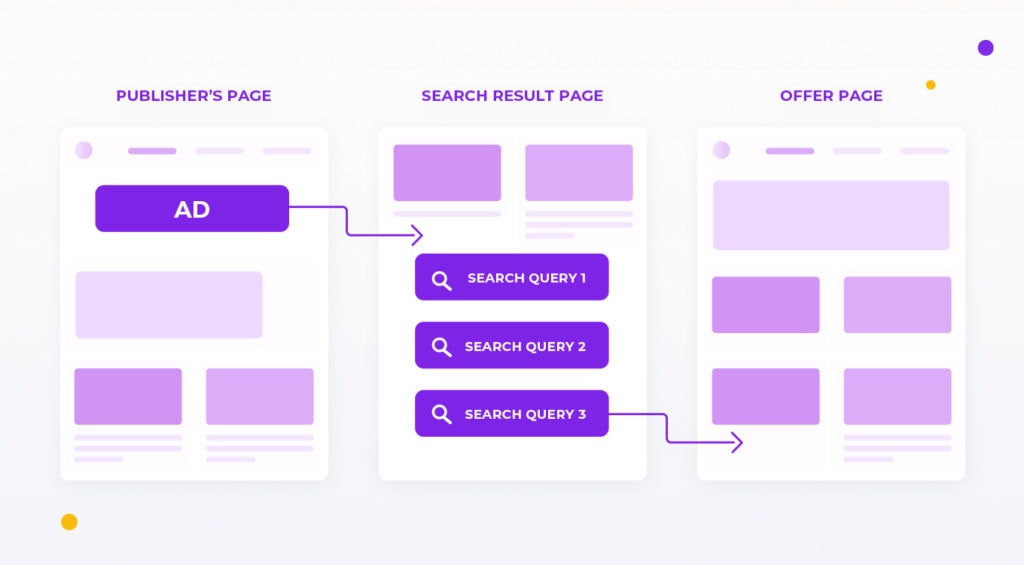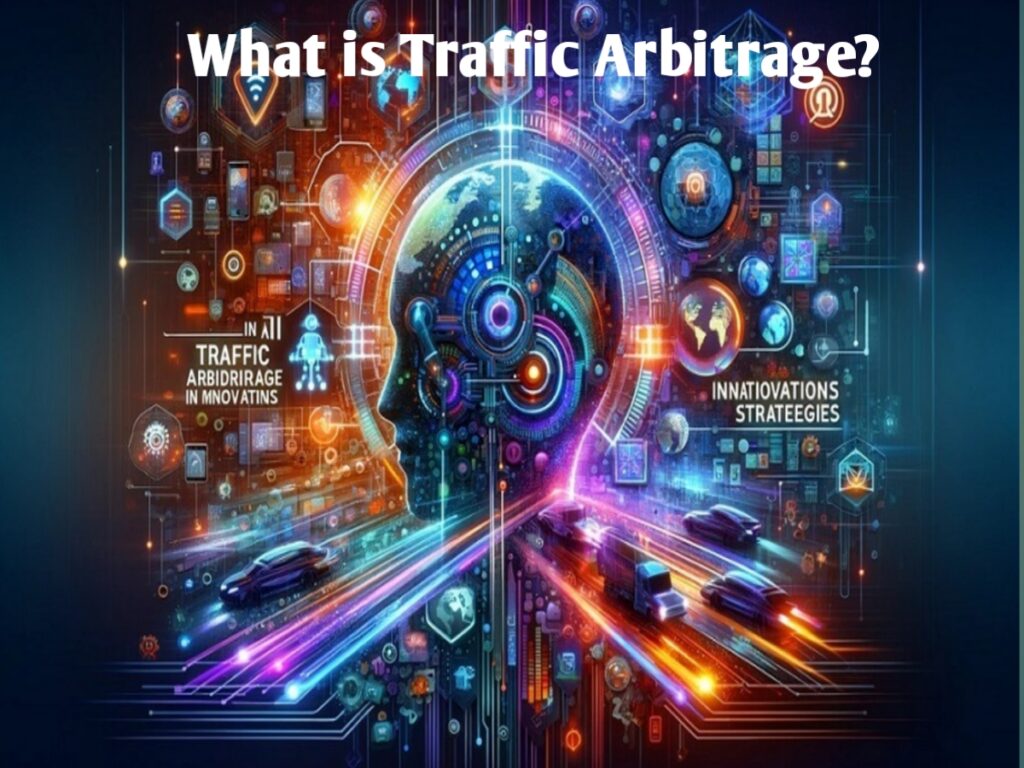Traffic arbitrage is a digital marketing strategy that allows savvy marketers to make money by exploiting the differences in advertising costs. It’s a method that has evolved significantly and remains a popular choice for generating revenue online. In this detailed guide, we’ll dive into what traffic arbitrage is, how it works, and the strategies you need to succeed in this space.
1. Definition of Traffic Arbitrage

Traffic arbitrage involves purchasing web traffic at a lower cost and then redirecting it to earn higher revenue through various monetization models. It’s about finding the right balance between paid advertising costs and the revenue generated from advertisers, using strategies like pay-per-click and cost-per-action. Unlike traditional marketing, traffic arbitrage focuses solely on profiting from the spread between buying and selling traffic. Learn more about the concept of traffic arbitrage.

Table of Contents
2. Historical Background

Traffic arbitrage has its origins in the early days of the internet, where webmasters would buy low-cost traffic to profit from ad networks. Over time, it has evolved alongside changes in web technology and marketing trends. As more traffic sources emerged, such as social media and programmatic advertising, traffic arbitrage matured and diversified. This evolution illustrates its adaptability and resilience in a rapidly changing digital environment.
3. How Traffic Arbitrage Works

The mechanics of traffic arbitrage are straightforward: buy traffic from cheap sources, redirect it, and earn higher revenue. The key is to target audiences effectively, select cost-effective ad buys, and funnel the traffic to high-paying ad networks or landing pages. Successful arbitrage hinges on measuring each step accurately to ensure the return surpasses the initial expenditure.
4. Types of Traffic Sources
Paid Traffic
This involves acquiring traffic through methods like pay-per-click (PPC) campaigns and social media advertising. These sources often offer highly targeted traffic, making them suitable for traffic arbitrage.
Organic Traffic
While less common in traffic arbitrage, organic traffic contributes to cost reduction. It involves drawing visitors through search engine optimization (SEO) without incurring immediate costs.
Direct Traffic
Direct traffic occurs when users navigate directly to a website, often through bookmarks or typing URLs directly. This can be leveraged to bolster traffic quality and profitability.
5. Key Players in Traffic Arbitrage
Advertisers
Advertisers are essential in traffic arbitrage, seeking to reach wider audiences through various platforms. They pay for exposure, driving demand and revenue.
Publishers
Publishers act as the middlemen, buying traffic and selling it at a higher price. They play a crucial role in maximizing margins by acquiring affordable traffic sources.
Affiliate Marketers
Affiliates are integral to traffic arbitrage, using techniques like content marketing and social media to funnel traffic towards conversion-rich targets. They benefit from a commission-based model, enhancing their profits as traffic and sales increase.
6. Traffic Arbitrage Models
Cost Per Click (CPC)
With the CPC model, advertisers pay for each click on their ads. This model requires precise targeting to ensure that clicks convert into valuable actions.
Cost Per Action (CPA)
CPA involves getting paid when users perform specific actions, such as signing up or making a purchase. It’s particularly lucrative when the profit margin from the action exceeds the cost of acquisition.
Cost Per Thousand Impressions (CPM)
CPM charges per thousand ad views, making it essential to generate high traffic volume for profitability. This model suits campaigns focused on brand awareness.
7. Tools for Traffic Arbitrage
Tools like tracking software, ad networks, and analytics platforms are indispensable for traffic arbitrage. These tools enable marketers to monitor traffic flows, optimize campaigns, and measure performance to refine strategies and improve ROI.
8. Strategies for Successful Traffic Arbitrage
Keyword Research
Thorough keyword research is vital for targeting the right audience. It ensures that traffic is directed efficiently to profitable campaigns.
A/B Testing
A/B testing is crucial for optimizing ads and landing pages. By comparing different versions, you can identify what resonates best with your audience and maximize conversions.
Landing Page Optimization
A well-optimized landing page significantly boosts conversion rates. Focus on clear, persuasive content and compelling calls to action to turn visitors into customers.
9. Risks Involved in Traffic Arbitrage
Market Saturation
As more players enter the arena, the competition increases, potentially squeezing profit margins. Staying ahead requires ongoing analysis and innovation.
Ad Fraud
Ad fraud can undermine arbitrage efforts by inflating costs with fake traffic. Implementing fraud detection measures is essential to safeguard profitability.
Compliance and Regulations
Adhering to advertising laws and platform rules is critical to avoid penalties. Staying informed about legal changes ensures compliant operations.
10. Cost Factors in Traffic Arbitrage
Traffic purchase costs, platform fees, and operational expenses contribute to the overall cost structure. Effective budgeting and cost management are crucial to maintaining profitability in traffic arbitrage ventures.
11. Case Studies of Successful Traffic Arbitrage
Examining real-life examples of traffic arbitrage can offer valuable insights. These case studies highlight strategies that work and common pitfalls to avoid, providing a roadmap for success.
12. Common Mistakes to Avoid
Poor Traffic Quality
Focusing solely on quantity can be detrimental. Prioritize quality traffic to ensure higher engagement and conversion rates.
Ignoring Analytics
Leveraging analytics to track performance and refine strategies is essential for sustainable success. Ignoring metrics can lead to missed opportunities for optimization.
Neglecting Mobile Optimization
With the growth of mobile internet usage, optimizing for mobile devices is non-negotiable. This ensures a smooth user experience and maximizes conversion chances.
13. Future Trends in Traffic Arbitrage
Emerging trends such as artificial intelligence and machine learning are set to transform traffic arbitrage. Staying abreast of these developments is crucial for sustaining competitive advantage.
For more insights on how traffic arbitrage is evolving, you can check out this comprehensive guide.
14. Frequently Asked Questions (FAQ)
- What is traffic arbitrage?
- It’s the practice of buying low-cost web traffic and monetizing it through higher-paying ads or conversions.
- How can I start with traffic arbitrage?
- Begin by understanding your audience, researching traffic sources, and selecting appropriate monetization models.
- What are common pitfalls?
- Poor traffic quality, ignoring analytics, and neglecting mobile optimization are common mistakes.
15. Resources for Further Learning
- Traffic Arbitrage in 2024: Innovations, Trends, and Strategies
- Traffic Arbitrage Trends in 2024: Expert Tips
16. Conclusion
Traffic arbitrage remains a lucrative strategy if executed with precision and knowledge. Understanding the dynamics, from buying traffic to optimizing its flow, is key to making it work. By leveraging technologies, tools, and strategies, you can navigate the complexities of this digital marketing field effectively, ensuring a profitable venture in 2024 and beyond.




